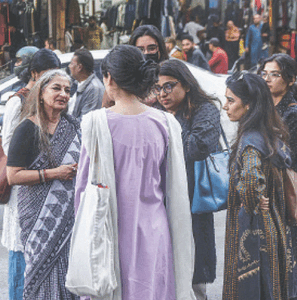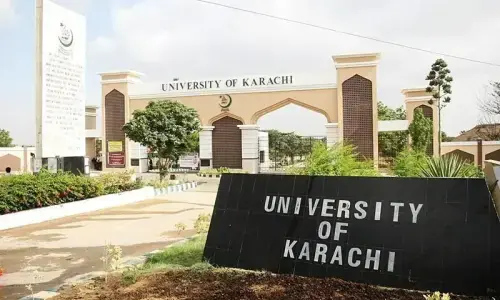KARACHI: “International non-governmental organisations (INGOs) also support Pakistan’s development agenda and progress towards meeting sustainable development goals, therefore, the civil society urges the government to immediately withdraw the de-registration letters issued to INGOs,” said Karamat Ali, executive director of the Pakistan Institute of Labour Education and Research (Piler).
He was addressing a joint press conference called by human rights activists and civil society members at the Karachi Press Club on Friday to share their concerns about "shrinking space for discourse on fundamental rights".
They urged the government to ensure provision of all rights without any discrimination.
All participants were of the view that arbitrary laws, many originating from the colonial era that curb freedom of expression, freedom of assembly and freedom of association must be reassessed.
“Pakistan’s civil society in recent years has come under increasing pressure for its work on fundamental freedoms. Not only have the members of civil society faced curbs on their operations, there have also been threats to the lives, security and well-being of those involved in any activity related to the advancement of democratic cause and fundamental freedoms,” he said.
“Pakistan’s civil society comprising human rights defenders, political workers, NGOs, academics, student bodies, media persons, trade unionists and other professionals have worked together as a force to protect democracy, advocate fundamental rights and advance delivery of essential services of health and education while empowering millions of individuals and households by spreading awareness of skills and economic benefits,” he said.
“It has been a partner in the country’s development and has made critical contributions to Pakistan’s political, economic and cultural foundations by assisting the government with work in the development sector to improve lives of people and also voice concerns over violations of fundamental rights,” he added.
“The civil society in Pakistan and around the world endorses greater transparency and accountability at various levels and welcomes initiatives to refine laws and policies in order to meet challenges of the modern era. But recently, there have been a series of actions by the state and non-state actors targeting different sections of civil society, particularly the non-governmental sector by discrediting their work, initiating malicious campaigns and even directing threats and intimidating actions that have directly affected the lives of those associated with this sector,” he said.
“Such kind of curbs are in addition to targeting journalists and members of professional bodies, attacks on human rights defenders and creating a hostile environment against all critical elements of democracy,” he said.
The press conference was also attended by chairman, Pakistan Fisherfolk Forum Mohammad Ali Shah, Habibuddin Junaidi of People’s Labour Bureau, advocate of Sindh Human Rights Defenders Network Ali Palh, senior human rights activist Zulfiqar Halepoto, senior trade unionist Manzoor Razi and Qamrul Hassan of the International Union of Food Workers, South Asia, who also presented a charter of fundamental rights.
The charter is directed towards the newly-elected federal and provincial governments.
“We see the formation of a new democratic government, which came to power with an agenda of change as a sign of fresh beginning for Pakistan’s civil society. Both the Pakistan Tehreek-i-Insaf and the Pakistan Peoples Party have expressed in their respective manifestos their commitment to fundamental rights enshrined in the Constitution,” said Karamat Ali.
He said that the Financial Action Task Force’s (FATF) grey list warned Pakistan to halt the financing of terror groups working in the disguise of NGOs.
“However, instead of banning such outfits the government is asking legally established local and international NGOs to close their operations here. There is a need for the government to reconsider its actions against authorised members of civil society,” he said.
“We feel that the requirements of FATF are being misinterpreted. Therefore, there is a need to re-evaluate and work towards developing strategies to identify the unauthorised NGOs,” he added.
It was stressed that the government revisit the INGO Registration Policy Framework 2015 through a consultative process as accountability and transparency mechanisms should come through a transparent and consultative process.
“We urge the government to form a representative committee comprising parliamentarians, human rights institutions ... and members of civil society to develop a structure that supports dialogue between the government and civil society so that any reservations towards transparency and accountability could be addressed,” he said.
Published in Dawn, November 24th, 2018


































